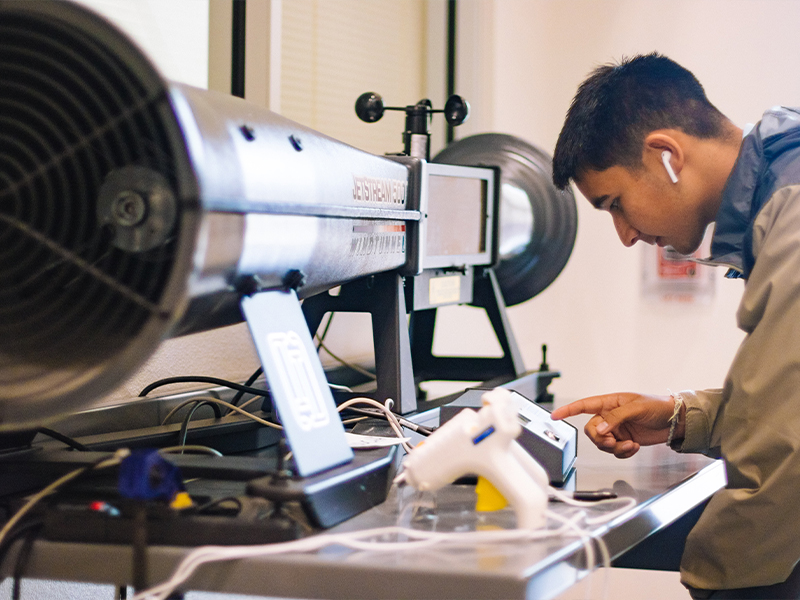Impact of New Education Policy on Engineers
How will the new Education Policy affect your Career?
Education is one of the basic need for a human being and it is a fundamental right. Rapid changes in the knowledge landscape is an important factor with the scientific and technological advances. There exists a tremendous rise of big data, machine learning, and artificial intelligence. Also many unskilled jobs worldwide may be taken over by machines, while the need for a skilled workforce with multidisciplinary abilities. The need for a change in the economy, India stands up for “Atmanirbhar Bharath” which demands for all products being manufactured in our country. The world’s energy also changes with pollution, climate change and resource availability resulting in the need for new skilled labour. The growing emergence of epidemics and pandemics is changing the style and demand for work. Digitization is one of the major changes that occurred in 2020. Keeping in mind about all the parameters a New Education Policy is published recently in 2020. Let us see how it creates an impact on us – We the Engineers. Education Policy lays particular emphasis on the development of the creative potential of each individual.

This policy modifies the 10+2 structure in school education to a new structure of 5+3+3+4 covering ages 3-18.
A good student must have interdisciplinary skills with a large amount of flexibility. To successful, innovative, adaptable, and productive human beings in today’s rapidly changing world, we should grow with the technology. Scientific temper and evidence-based thinking; creativity and innovativeness; sense of aesthetics and art; oral and written communication; health and nutrition; physical education, fitness, wellness, and sports; collaboration and teamwork; problem solving and logical reasoning; vocational exposure and skills; digital literacy, coding, and computational thinking; ethical and moral reasoning; knowledge and practice of human and Constitutional values; gender sensitivity; Fundamental Duties; citizenship skills and values; knowledge of India; environmental awareness including water and resource conservation, sanitation and hygiene; and current affairs and knowledge of critical issues facing local communities, States, the country, and the world are important.
Benefit as an engineer:
As an engineer, till date we gained our skills either through diploma or during the period of degree. Rarely students acquire skills out of interest through self-experiments and projects. In this modern era of digitization, it is important for every individual to be technically advanced. Today automation is all over and having just knowledge of core subjects will not lead you anywhere unless you can automate things. Hence software developments and artificial intelligence and machine learning learn is necessary.

The new education policy states that children will be given coding skills right from middle schooling to cope up with the technological advances. This is a major advantage for engineers as well as non- engineering students as now coding will be a basic skill. Students need not struggle learn different coding languages after entering engineering to struggle for placements. The engineers now are expected to be versatile in both hardware and software.
Another major change in the education policy is about the 4 years’ degree. Under graduate will have multiple entry exit options. Just in case any student loses interest in Btech, their time period will not be a waste. Let me tell you in detail about this: –
• Suppose you took engineering and after a year you want to leave it and fulfil your dreams – usually you will not receive any degree according to the current education policy. The New Education Policy states that if you leave after 1 year – You will receive a basic degree.
• After second year of engineering you will receive a Diploma degree.
• Third year of engineering will give you a degree similar to BE, BSc etc.
• Luckily after 4 years you will be awarded with a full fledge B.Tech degree with industrial exposure.

Now, coming to the industrial exposure, presently our curriculum is theoretical based although there is a lot of emphasis on projects. Some universities stress on internships as well for experience. But in accordance to the New Education Policy, industrials visits will be arranged for students right from High School. Every person will now be aware about how a particular industry functions. The subjects and curriculum will be more industry skill oriented. Coming to the Master’s programme, the MTech degree is reduced to 1 year from 2 years. This is because the 4 th year of BTech is totally dedicated to research. Higher Educational Institutes will offer 1-year MTech programmes to students who have completed 4-year BTech with research. There may also be 2-year with 2nf year devoted to research for those who will complete 3 years BTech. There is also an option of 5 years integrated BTech/MTech course.
A 4-year BTech student with research can pursue PHD without attending PG. Apart from these, the Higher Education boards like UGC and AICTE will now be centralised to a single Higher Education Policy and the marking scheme in all universities will be standardised. The fees for all private and non-private universities will also be standardised. The major changes are beneficial for the young generation and are implacable from 2021. But everything requires time and all these will benefit us in upcoming years.

